i was making coffee the other morning, standing too close to the counter because the apartment still smells faintly of the dinner i burned two nights ago, and my phone lit up the way it does now: three notifications, then another, as if it were trying to build an argument for my attention. for a second i let the kettle sing and watched the steam nail a line on the window. i wanted a simple morning — one cup, one paragraph, one quietish hour to myself — and the day offered everything else. i told myself i would do less, and then immediately started drafting a list of the things i would drop, which is the exact opposite of simple. that little contradiction is the kind of thing that turns up in ordinary life more than theory. wanting simple feels like a private contract with your own time, but living in the world means that contract gets read aloud by calendars, by group chats, by the polite expectation that you will show up and be three people at once. the paradox is that the desire for simplicity is earnest and personal while the conditions around it are noisy and public, and the negotiation between the two is where most of us stumble.
when people imagine simplicity they picture a postcard: linen sheets, a single plant on the windowsill, a slow walk at dawn. the real shape of a simpler life is usually less photogenic. it is the small boundary you have to tell your partner about so the evening does not fill with errands, the single drawer you decide to keep uncluttered so your keys have a home, the agreement with yourself to check email only twice a day. each of these choices looks small until it is the one thing protecting your mood, and then it looks enormous because you must hold it while everything around you insists on expansion. saying no becomes an exercise in diplomacy: you negotiate with friends, with family, with professional expectations, and most painfully, with your own old habit of measuring worth by busyness. the desire to be simpler forces you to ask: what is mine to protect and why?
technology complicates the bargain in a way that feels almost personal. an app promises to help you focus and then shows you a leaderboard, turning a practice into a performance. a calendar tool promises control and delivers color-coded anxiety. notifications were designed to hook us, and hooks have a funny way of looking like necessity. the tools that promised to help us manage life now calculate how often we look up from the flow and sell that calculation back to us as insight. the irony is not clever, it is exhausting. the small mercy is that the tools can be placed on a shelf like any other object, but doing that requires labor. the labor of resisting a default is itself an add-on. a simple morning often demands silent maintenance: unsubscribing, muting, deleting, saying no again and again until it becomes easier than saying yes reflexively.
biology is another inconvenient player in this story. our brains like novelty and reward. a ping produces a tiny rush that can look like meaning. human attention evolved to notice change and threat, not to sit calmly with one page for a long stretch. so when you try to make a life quieter you are asking your nervous system to learn a different set of satisfactions. the first week of a simplification experiment can be electric; the second week can be boring; the third week asks you to sit with boredom until it softens into something you can use. this is the discipline part of wanting less. it is not glamorous and it is not tidy. it asks for boredom as a training ground where deeper pleasures can grow unnoticed.
there is also the social dimension. in the same breath people will praise your ability to slow down and shame your choices as selfish, depending on what suits them. i have watched friends who manage to carve out a slower life being admired and weaponized in the same conversation. one person is applauded as brave for stepping back from work while another is judged lazy for not taking on more overtime to support a family. simplicity becomes a mirror in which privilege and circumstance reflect differently. some people can afford to opt out because support systems are in place that cover the cracks. others cannot. if we talk about wanting less without talking about what made that less possible, we end up telling a partial truth that functions like advice you cannot afford.
part of the problem, and also part of the relief, is that simplicity is not a destination. if you think of it as a tidy goal you will fail at it and then feel worse. instead, simplicity is a practice that bends and flexes. some days you protect the morning because a child needs steadiness; other days you choose to say yes because someone you love asked for help. the work is in the pattern, not the purity. if you have one steady hinge in your week — a morning ritual, a walk you do every sunday, the rule that you do not check messages at dinner — those hinges do more stabilizing work than a thousand aspirational rules.
i learned this in small ways. for a while i obsessed over the perfect method of simplifying, reading listicles and watching reels that promised a boxed set of habits. each new ritual required maintenance: a special laundry day, a curated capsule wardrobe, a labeled jar for receipts. the upkeep became a second job. then a friend suggested a single test: remove one recurring obligation for a month and notice what fills the space. it was not dramatic. it was not an overhaul. it was a single change that had ripple effects. meals became quieter because there was one fewer obligation vying for the evening. emails lost their urgent sheen because i had fewer scheduled touchpoints. the small subtraction had a stubborn, useful effect. that is often how simplicity arrives: as attrition, not as an aesthetic program.
i want to be honest about the loneliness that sometimes comes with choosing less. when you have fewer things on your schedule you have more time that requires company. you either meet yourself and find something to do, or you find the silence loud in ways you did not plan for. solitude can be a luxury when framed by choice, and a burden when forced by circumstance. knowing the difference is part of the skill. it means building rituals that are inward-facing but not isolating: the habit of calling one friend on sunday, the practice of walking with headphones that are only for music and not for podcasts about productivity, the agreement to keep one table at home free from devices so conversation can happen without stage directions.
there is also a moral hazard in how we advertise simplicity. as soon as it becomes a brand, it is vulnerable to performative practice. a tidy instagram page can show you a life that looks calm because it hides the chaos you do not want to photograph. people post photos of neatly folded sheets and leave out the months of debt or illness that made the tidy life possible. the useful part of wanting less is private: it is a relation with your own capacity. the performative parts are the ones that make simplicity look like another achievement to be obsessed over.
practical choices that feel true to me are less about ritual drama and more about permission. permission to let one area go slack without fearing collapse. permission to say no to an invitation with an explanation that is not performative. permission to keep a drawer messy if the price of tidying it is a few hours of peace elsewhere. permission to prioritize presence over breadth. these permissions sound small until you have to enforce them, and enforcement is where character shows up. in the end, choosing less is a series of micro-boundaries, not one big brave speech.
a surprising thing happens when you keep that series up long enough: your commitments change in quality if not number. when i stopped scattering myself in too many directions i began to notice details in the people i kept around. conversations deepened because i arrived for them with less fatigue. small acts of attention became possible: remembering a partner’s odd craving on a bad day, noticing a friend’s voice falter mid-sentence and staying on the line, answering a child’s question with enough time to mean it. the paradox unravels a little here because the simplicity that asks for less activity gives you the bandwidth to be more present in the things you do choose to keep.
this is not to say everyone should pursue a pared-down life. some lives are full because they must be, because family, work, or love demands it. the real question is not whether you want a simple life in principle, but how you want to make trade-offs in practice. trade-offs involve loss as much as gain. you will miss parties. you will say no to opportunities that might have been fun. you will sometimes feel isolated. the key is to choose those losses for reasons that matter to you, not because you are following a trend or a tidy ideal. that requires honesty and a tolerance for imperfection.
so what do you actually do in a noisy world if you want less. pick one boundary and guard it like plumbing in an old house. choose one rule that prevents a slow creep of commitments. practice the small kindness of forgiving yourself when you fail at your own rules and then come back. retire a ritual that costs you more energy than it returns. and be open to the fact that simplicity is not a single flavor. for some it will be fewer possessions. for others it will be thicker presence with fewer people. for many it will be a rotating negotiation. keep it messy and call it useful.
i will probably put the kettle on tomorrow, place my phone in another room, and let myself sit with a page until i want to stand up. that is a small rebellion, if you like, but it is also an experiment. it may fail. someone may ask for help and i will say yes. the point is not to be ascetic. the point is to hold a shape for the hour that feels like your own, and to do it again the next day. wanting a simple life in a noisy world is less a refusal of the world than a decision about how much of the world you let in at once. that decision has to be made again and again, which makes it both restless and kind.



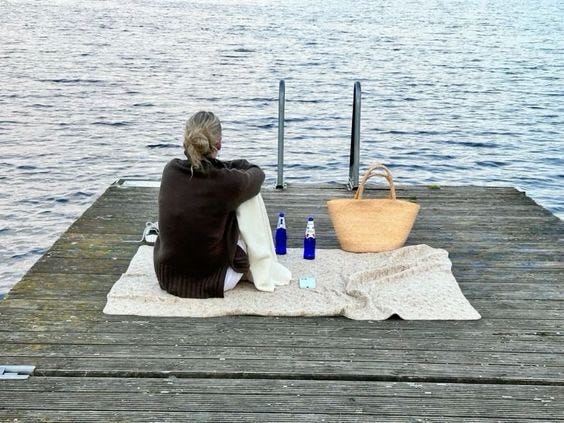
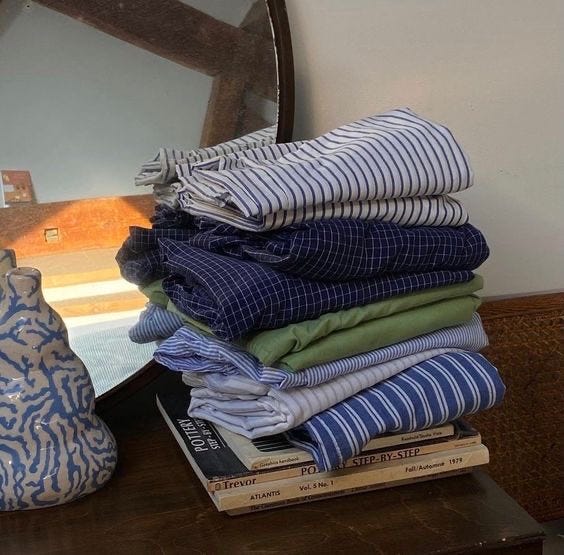

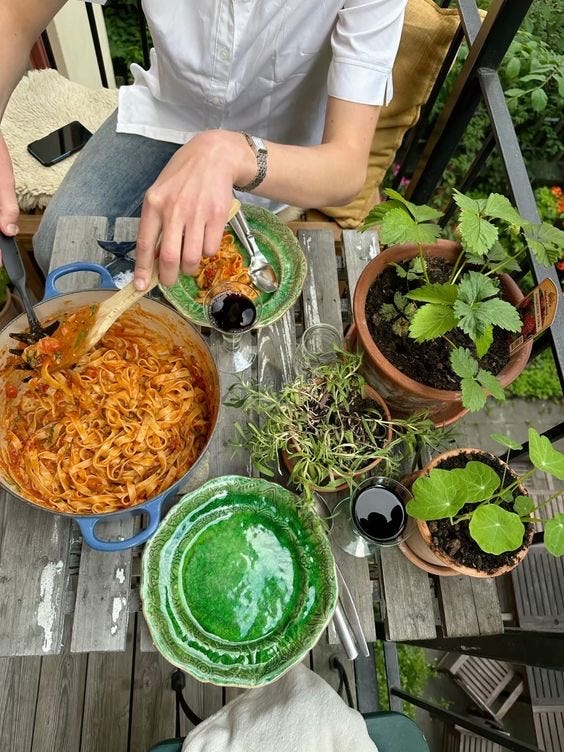
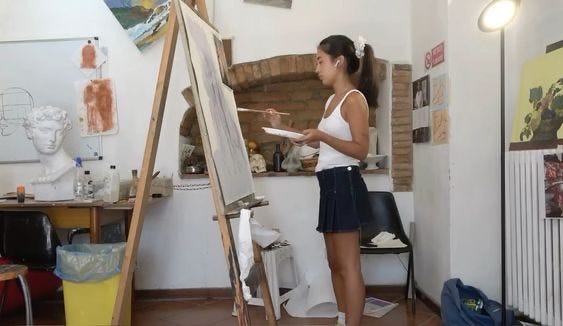
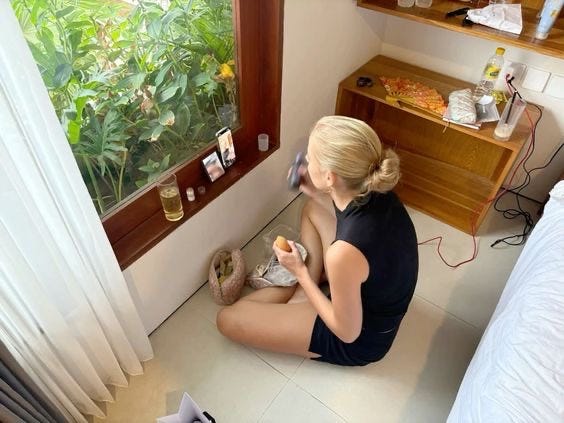
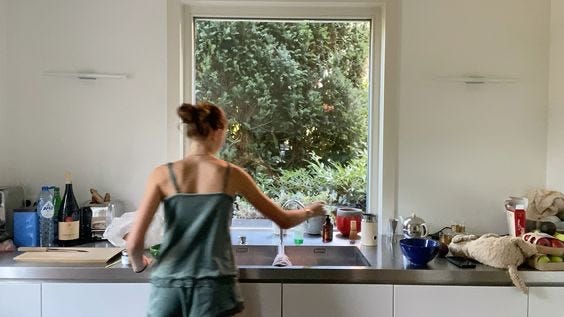
Thank you for this article. I've recently started a meditation and stillness practice, and while I absolutely love it, I often feel guilt that I'm not more productive in my life. I've slowed down but the guilt that comes along is so consuming as I tell myself I could have used that time to get so much done instead of sitting there doing nothing.
Im going to try a small rebellion when I wake up. Thank you for the inspiration